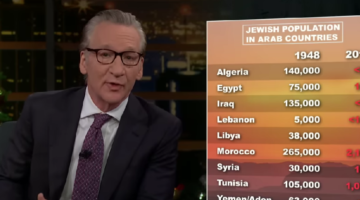www.bangitout.com by Jordan Hiller
Our 25 Essential Jewish films continue with…
22. THE CHOSEN
God knows it’s hard to make a good movie from a lame book, and for affiliated Jews, to read Chaim Potok’s bestselling 1967 novel about the unlikely friendship between two very different Jewish kids in 1940’s Brooklyn, is an exercise in masochism. Forget that The 19df4.jpg) Chosen – likely based on its content as opposed to its literary merit – has become required reading for Jewish young adults everywhere (either in school or by their well-intentioned parents who don’t recall how awkward and unappealing the book was). The flimsy story, the unfathomable relationships, the neutralized language, the contrived circumstance, the rhetoric, the self-serving message – these ingredients do not add up to anything extraordinarily redeeming. It’s a nice book at times with a moment or two of gravitas. It allows some insight into a complicated world where even within orthodoxy there are maddeningly fine layers, which separate factions with chasm-like distance. To outsiders, this glimpse into foreign territory may prove fascinating. So fascinating that Potok’s (he passed in 2002) semi-lofty place in American literature is sealed for a good century. He will be read. He will be remembered. And besides, everyone knows that Potok’s 1972 novel My Name is Asher Lev is the real gem in his library; The Chosen is merely his claim to fame. And probably so due to Jeremy Kagan’s beloved 1981 movie. My question then is whether the movie is beloved the same way the book is beloved…simply because we feel obligated to. So enough about Potok; let’s talk about Benson.
Chosen – likely based on its content as opposed to its literary merit – has become required reading for Jewish young adults everywhere (either in school or by their well-intentioned parents who don’t recall how awkward and unappealing the book was). The flimsy story, the unfathomable relationships, the neutralized language, the contrived circumstance, the rhetoric, the self-serving message – these ingredients do not add up to anything extraordinarily redeeming. It’s a nice book at times with a moment or two of gravitas. It allows some insight into a complicated world where even within orthodoxy there are maddeningly fine layers, which separate factions with chasm-like distance. To outsiders, this glimpse into foreign territory may prove fascinating. So fascinating that Potok’s (he passed in 2002) semi-lofty place in American literature is sealed for a good century. He will be read. He will be remembered. And besides, everyone knows that Potok’s 1972 novel My Name is Asher Lev is the real gem in his library; The Chosen is merely his claim to fame. And probably so due to Jeremy Kagan’s beloved 1981 movie. My question then is whether the movie is beloved the same way the book is beloved…simply because we feel obligated to. So enough about Potok; let’s talk about Benson.
By a shtetl mile, the most worthwhile aspect of The Chosen is the luminous, startlingly intelligent performance turned in by a twenty four year old Robby Benson. Benson was sort of an up and coming leading man when he took the role of conflicted Chassid, Danny Saunders. It wound up being his silver screen career highlight as a major breakthrough did not follow, but his work in The Chosen is one for the ages. Benson, Jewish but certainly not observant, embodies the sheltered simplicity combined with assured arrogance of ultra-orthodox piety with amazing accuracy. He smiles brightly with innocent eyes craving to know more but fearing to know too much. He is handsome and dignified, yet instantly draws one’s pity and sympathy. He bottles up all doubts and urges resulting in an almost alien demeanor – polite, courteous, genial, but so socially backward as to never appear remotely comfortable. Only comfortable in the religious setting, in ritual practice; every other subject (including friendship) is secondary and not precisely “real” enough to matter. His dedication since birth has been to an exacted tradition and an uncompromising form of yiddishkeit. I don’t know how he did it, but this difficult to convey representation of orthodoxy – without becoming a caricature or heavy handed – is carried by Benson to near perfection.
The plot device in The Chosen, and it is an interesting one, is that Danny Saunders is a prodigy. He has an exceptional mind capable of soaring off the planet, yet he was born into an environment that leans toward inhibition and stifles radical thinking. Hence the journey which brings him closer to modern-orthodox Reuven Malter (token “believable” Jewish actor Barry Miller) and isolates him from his community and holy, unapproachable Tzaddik father (convincingly portrayed by Rod Steiger).
Potok’s argument is undoubtedly a Torah Umadah one, and Edwin Gordon’s screenplay – the only one Gordon ever wrote – follows suit. As a Yeshiva University graduate (1950), Potok clearly bought into the religious paradigm of being a complete Torah Jew and a contributing secular citizen of the world. Danny is his case subject, and the experiment is to determine whether someone with a strong orthodox foundation can remain satisfied with orthodoxy alone when they possess an above average intellect. The Chosen attempts to “prove” that even the Rebbe would agree, gifted Chassidim should shave their beards and become psychologists. Well, not exactly, but Potok’s story does suggest that there is a right and wrong (or, rather, an enlightened and a blind) side of the Jewish orthodox spectrum. When some of the Chassidim, including Danny, are permitted to go to Hirsch College (evidently a YU stand-in, and evidently a nod to the father of modern-orthodoxy, Rav Shimshon Raphael Hirsch) it is portrayed to be a monumental victory for the modern (a.k.a normal, a.k.a acceptable) brand of American orthodoxy. When Danny marvels at a naked sculpture in an art museum and coos, “She’s beautiful,” we are expected to be relieved and validated. Audiences are supposed to be overwhelmingly satisfied that at the end of the story Danny – to a degree – escapes his community and becomes a perfectly “normal” orthodox Jew. No more of them crazy payos and scraggly beards! “We can save them!” Potok exclaims. “We can bring them from the darkness to the light!
The problem of course with this entire process, besides the fact that it is supercilious and condescending, is that it’s conceptually unsound. Our first giveaway is that the Chassid is named “Danny” while the kid who doesn’t wear a kippah is named “Reuven.” Show me a pure Chassid with a given secular name and I’ll retract this entire review. The boys meet at a baseball game, where the film has a grand time introducing us to the odd looking Chassidim as they march toward the blacktop field like a nerd herd biker gang. Would a Chassidic yeshiva really have a baseball team when they instruct and preach denial of all popular culture? I wonder. Regardless, just as the book damages its authenticity by speaking in lifeless Gentile terms regarding Judaism (“I learn Talmud with my father”), the movie is a repeat offender.
After the Shabbos afternoon meal by Danny’s house, the boys go upstairs. My daughter, watching with me, screams out, “He just did muksah!” Alas, Danny went into his room and immediately flicked on a lamp. But there are other mistakes, not so forgivable because minimum research would have allowed for a credible film experience. The Chassidim pray on a weekday morning without tefillin. Reuven is instructed by Danny and Danny ’s mother not to flirt with and touch Danny’s teenage sister – the Rebbe’s daughter! – not because it is completely forbidden and damning, but because she has been promised to another years earlier. Such obstacles in plausibility will be quite grating to an observant Jewish viewer. While at the same time, some scenes – like Steiger dancing at a community wedding, or the Shabbos tisch – will be impressively genuine.
And that, outside of the mesmerizing Benson, is really where The Chosen earns its stripes.
Sure, the plot is tough to swallow and the filmmaking style seems straight out of 1970’s porn, but The Chosen is actually about Judaism. That takes guts. Special interest Jewish films are a dime a dozen but take away the ones that deal with Israel, the Holocaust, and what are deemed to be Jewish themes (cranky, old people in Florida, neurotic, rich people in New York), we are left with very little. The Chosen is a rarity of immense proportions. It shouldered its way into the popular consciousness, perhaps with a few concessions and a straining dramatic license, but nonetheless it remains a thoughtful, provocative engagement of legitimate issues relating to Judaism, the ancient, ever evolving religion. Potok took something typically kept for Shabbos table banter and made it into art, made it into a public challenge. Somewhat exploitative, but courageous nonetheless. For that alone, The Chosen deserves to survive and be forced upon our children for many generations to come.








